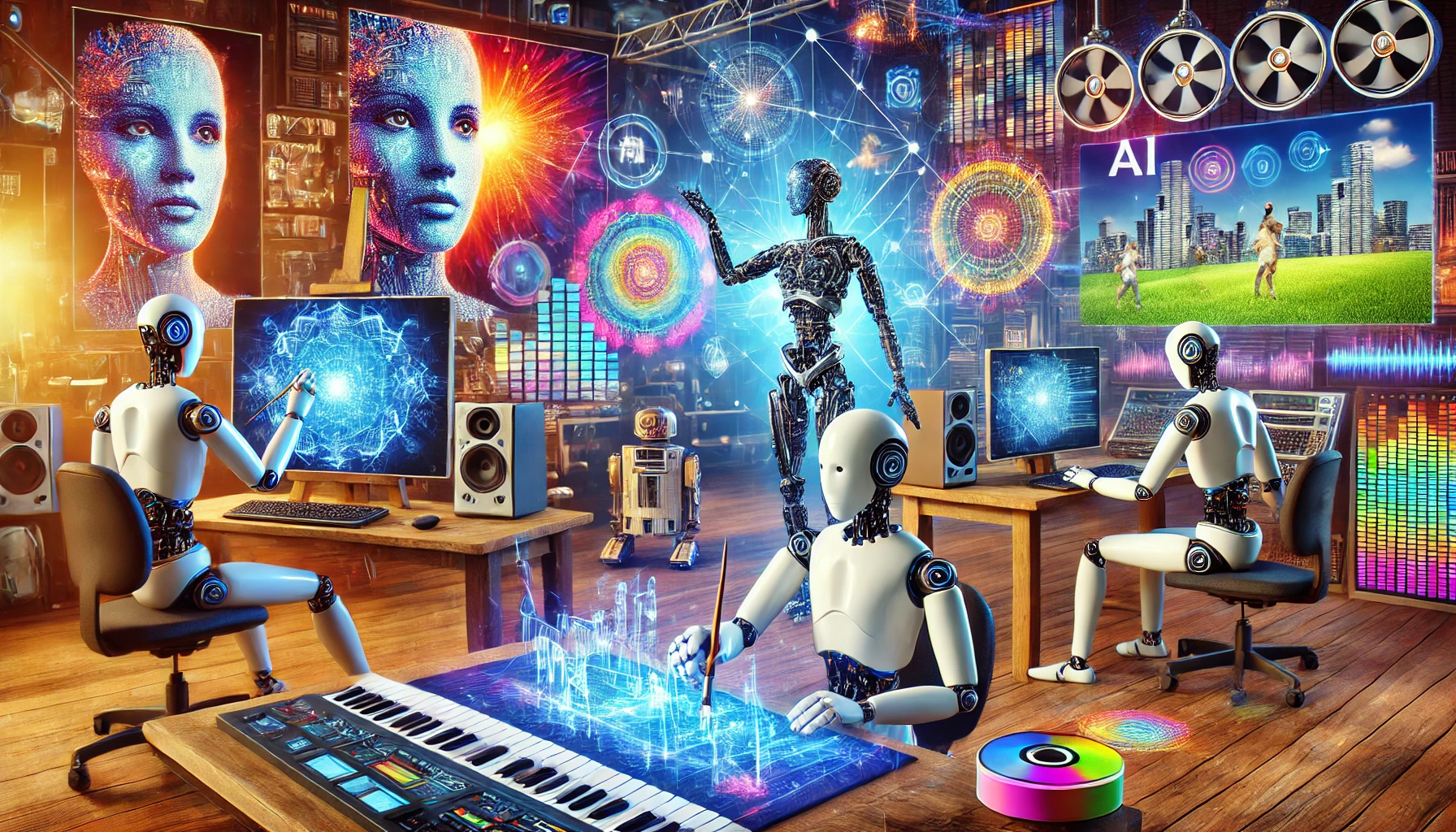
Digitalization has created major transformations in creative industries, creating innovative opportunities and challenges in areas such as art, music and cinema. As Webikondri, we discuss how digital technologies are revolutionizing these sectors and what to expect in the future.
The Impact of Digitalization on Art
Digital Art and NFTs
Digital art has gone beyond traditional art forms and created new forms of expression. Techniques such as 3D modeling, digital painting and animation offer artists unlimited creative space. Non-Fungible Tokens (NFTs) provide artists with a new income model by guaranteeing the originality and ownership of digital artworks.
Virtual and Augmented Reality
Virtual reality (VR) and augmented reality (AR) technologies offer visitors unique experiences in art exhibitions and museums. Visitors can explore artworks in virtual environments and access more information about the works thanks to augmented reality.
Online Platforms and Visibility of Artists
Social media and online platforms enable artists to deliver their works to a global audience. Platforms like Instagram, DeviantArt, and Behance are great tools for artists to showcase their work and interact with their followers.
The Impact of Digitalization on Music
Digital Music Production
Digitalization has made music production more accessible and affordable. Thanks to music software and digital audio processing tools, musicians can produce professional-quality music in their home studios. This has made it easier for independent artists to create and release their own music.
Streaming Platforms and Streaming
Digital streaming platforms like Spotify, Apple Music, and YouTube Music have completely changed our music listening habits. These platforms offer artists the opportunity to reach a global audience, while users can instantly access the music they want. In addition, personalized music recommendations are offered thanks to algorithms.
Virtual Concerts and Hybrid Events
The pandemic period has increased the popularity of virtual concerts and hybrid events. Music lovers can experience concerts through VR technology or live broadcasts. This allows artists to interact with their fans and create new revenue models.
The Impact of Digitalization on Cinema
Digital Film Production and Distribution
Digitalization has made the film production process faster and more economical. Digital cameras, editing software, and visual effects offer filmmakers greater creative freedom. In addition, digital distribution platforms such as Netflix, Amazon Prime, and Disney+ allow films and series to reach a global audience.
Streaming Services and Viewer Habits
Streaming services have radically changed viewer habits. Viewers enjoy the convenience of instantly accessing the content they want and watching it whenever they want. This has caused traditional movie theaters and television channels to reconsider their audience attraction strategies.
Virtual and Augmented Reality Films
VR and AR technologies make the cinema experience more interactive and immersive. VR films give viewers the feeling of being part of the story, while thanks to AR technology, viewers can experience movie scenes in their own living spaces.
Digitalization has led to major transformations in creative industries, offering innovative opportunities in the fields of art, music, and cinema. Digital art, NFTs, VR and AR technologies, digital music production, streaming platforms and virtual concerts are just a few examples of this transformation. As Webikondri, we closely follow these innovations brought by digitalization and offer our customers the most up-to-date and effective solutions. Take a step with us to take your place in the creative industries of the future.
